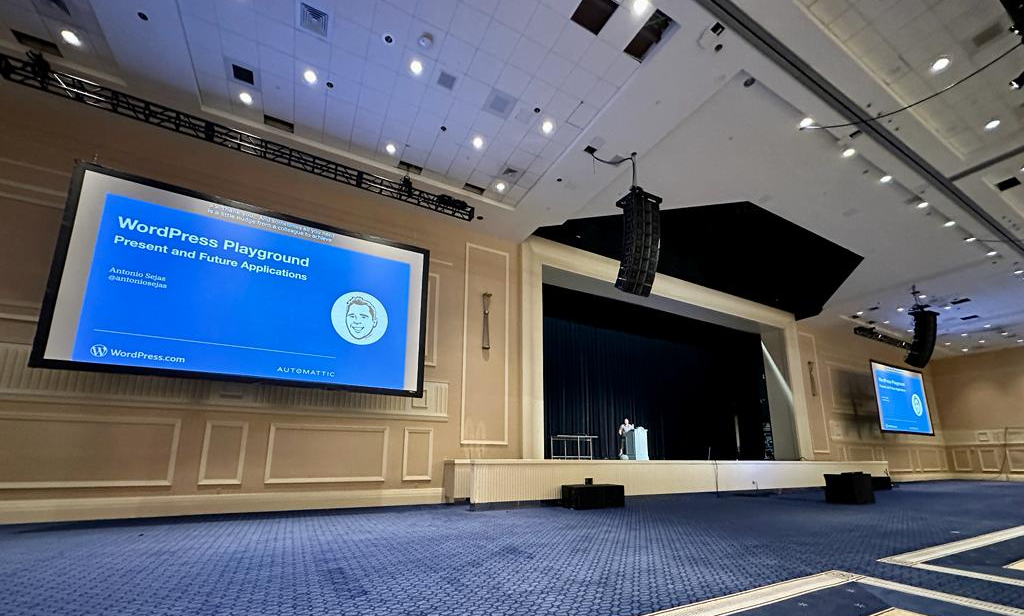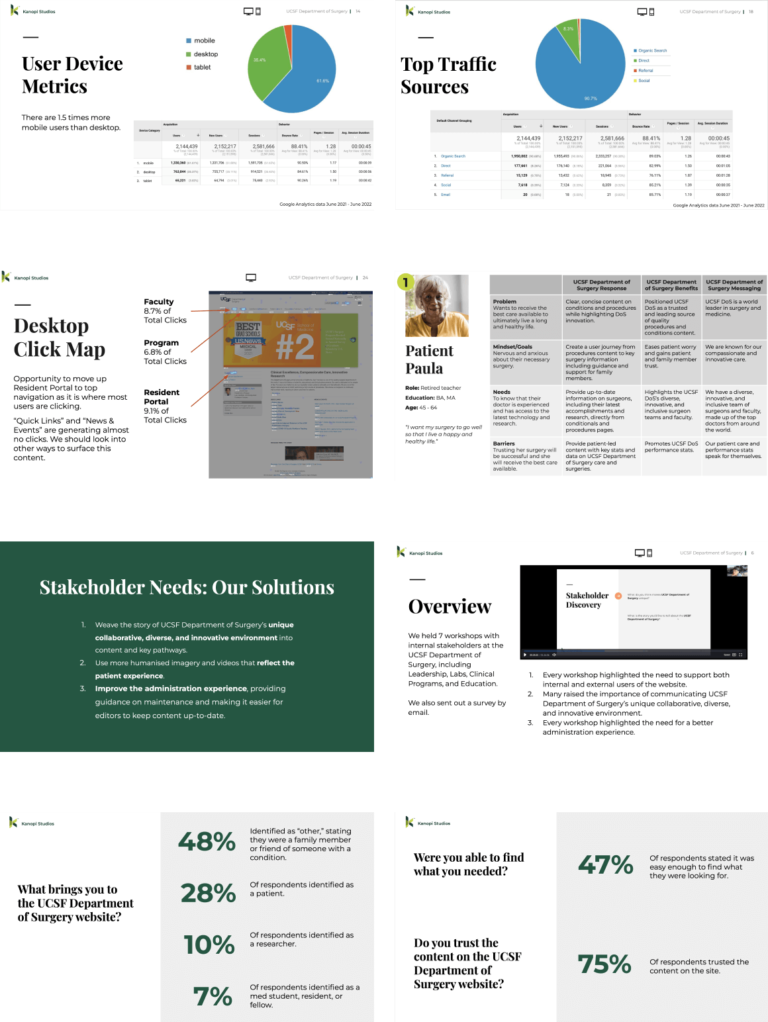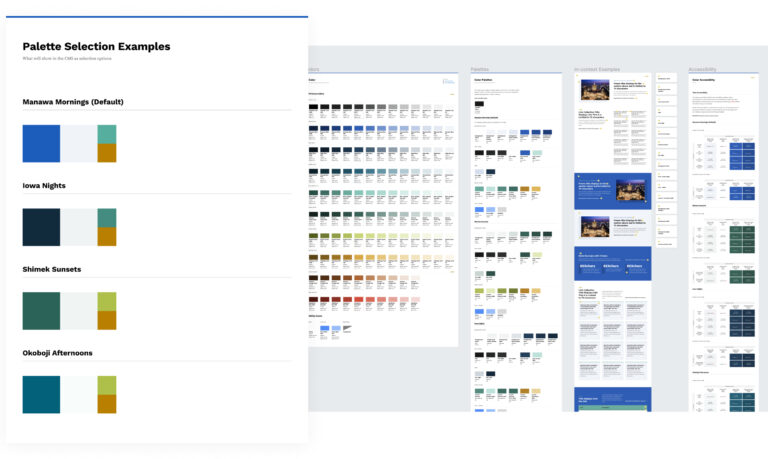
I may be partial on this one, given that I was the speaker, but I genuinely believe that WordPress Playground opens up exciting possibilities for both users and developers.
In my presentation, we explored different applications of WordPress Playground, organised into key areas: Learn, Showcase, Test, Develop, and Build.
All the President’s Websites
My takeaways from this talk are:
All the mentioned applications were developed by different members of the WordPress community. If you’re interested in leveraging or contributing to the WordPress Playground, I highly recommend watching the talk. You’re also invited to join the #meta-playground channel on the Making WordPress Slack community.
Making Large Language Models Work for You
The three presentations I’ve highlighted are just the tip of the iceberg. Watch all the talks on WordCamp US 2023 YouTube Playlist, and keep an eye out for the dates for next year. I would love to see you there!
Even though the website was launched on January 20, 2021, almost three years ago, it was already leveraging the power of Gutenberg blocks creating an outstanding content creation experience. Andrew and Helen made special efforts on accessibility, scalability, and the editor user experience by removing some of the core style settings in the editor.
- Hallucinations: In the context of language models like GPT-4, “hallucinations” refer to results where the model generates information that is incorrect or invented. Simon said that these models can be big liars. We gained insights into minimizing these hallucinations through the use of the prompt
Let's think step by step, as discussed in the Zero-shot-CoT paper. - Document Querying: We learned how to query a collection of documents without the need to retrain the model. This is possible thanks to the techniques of Retrieval Augmented Generation and word embeddings. Where you first search the relevant documents and feed the user prompt with those results.
- Security Risks: We became aware of the security vulnerabilities tied to prompt injections. This likely explains why these models are trained on data up to 2021, to mitigate the risk of hacker exploitation or bias injection.
I highly recommend these three talks from the event. They offer valuable insights for developers, specifically developing high traffic sites with Gutenberg, applying large languages models to your day to day work, and the applications of WordPress Playground.

WordPress Playground, Present and Future Applications
The impact of artificial intelligence is being felt across all industries, and the WordPress ecosystem is no exception. I’m amazed by the possibilities of integrating Large Language Models into WordPress. Here is an example of Jetpack AI Assistant:
Andrew Nacin and Helen Hou-Sandí are well-known WordPress core committers who have a combined 7,000 contributions. In “All the President’s Websites”, they took us on a journey through the high-stakes scenario that led to the launch of the new whitehouse.gov website in six weeks of development. The talk was a testament to what can be achieved with WordPress, even under the most exacting conditions.
- Under “Learn,” we discussed how the Playground provides immediate access to WordPress plugins and themes through the Query API for hands-on learning and exploring. The Interactive Code Block is perfect for learning by coding.
- For “Showcase,” we looked at WP GraphQL and Yoast as examples to let your users try your plugin serving only static content.
- In the “Test” category, we delved into using Gutenberg PR for testing pull requests in a live preview. We also tried the Translate Live used by core to translate strings right in the actual webpage.
- To “Develop,” we discussed setting up a local WordPress development environment using wp-now , using GitHub codespaces in any repository and installing the VSCode extension, which is the user interface of `wp-now`.
- In the last section, “Build“, we explored the three ways of extending the Playground through the Query API, Blueprints, and Javascript API. The latest one is used by Blocknotes, a mobile application running PHP and WordPress Playground. We also introduced some new tools like a Chrome extension and a Blueprint builder.
What I love about WordCamps is the freedom to choose from a variety of talks and workshops that resonate with your interests. The atmosphere is incredibly open, making it easy to start conversations and learn how others are making a living with WordPress, even ask questions to the speakers. But perhaps the most rewarding aspect is the sense of community; by the end of the event, you don’t just walk away with new knowledge but also with new friendships that share your passion for WordPress.
Conclusion
I recently had the incredible opportunity to attend WordCamp US 2023, marking my second WordCamp experience after visiting Greece this past June.




